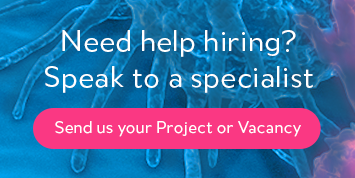
Neurodegenerative diseases are a substantial burden on the pharmaceutical industry, let alone for the millions of patients affected worldwide. Common neurodegenerative conditions such as Alzheimer’s disease, Parkinson’s disease and motor neuron disease (MND) seriously impair either physical movement or mental functioning, and are currently difficult to diagnose, complicated to treat and impossible to cure. Could the age of artificial intelligence (AI) and machine learning be the turning point for the diagnosis, prevention and treatment of these debilitating neurological diseases?
AI has many potential parts to play in tackling neurodegenerative diseases. Firstly, it could be used to provide faster and more accurate diagnosis. Secondly, it can help scientists to discover potential drug and biological targets that would lead to better treatments. Lastly, AI can be used to better understand the root cause of these conditions, ultimately guiding scientists to potential cures for an array of neurological conditions. This last point works hand in hand with the recent rise of personalised medicine, a form of healthcare based on our own genetic and molecular make-up. As AI becomes more advanced, it is thought that it will be able to help deliver targeted therapies that are tailored to each patient.
What makes AI so incredibly useful within scientific research and development is its efficiency. AI computer systems are capable of sifting through vast amounts of medical data faster than any human could. These computers establish patterns that could help researchers re-purpose drugs to treat another type of disease, or even highlight failed molecules that would be more successfully used within a different therapy area.
Below is just a small snapshot of the many cutting-edge AI technologies working tirelessly to unlock the mysteries of neurodegenerative disease:
Medical imaging helps with early diagnosis
Alzheimer’s disease is a type of neurodegeneration that causes loss of memory and cognitive function. It is thought to be responsible for 70-80% of dementia cases in the elderly. One of the main issues with Alzheimer’s disease is that it is difficult to diagnose, meaning that patients diagnosed in a later phase of the disease can’t experience the full effects of treatment that could potentially slow its progression or relieve symptoms.
In these cases, AI is paramount. Medical imagery techniques can spot cognitive impairment that is either difficult or impossible to see with the naked eye. For example, researchers Nicola Amoroso and Marianna La Rocca at the University of Bari in Italy are currently developing a machine-learning algorithm that can detect changes in the brain caused by Alzheimer’s disease up to a decade before noticeable symptoms appear.
The algorithm can accurately distinguish a diseased brain from a healthy one, analysing the neuronal connectivity between them which would help them pinpoint patients who are likely to develop Alzheimer’s in a decade. As the technology is still in development, they are unable to tell whether it could detect changes even earlier. This incredible chance at early diagnosis is real game-changer for patients, allowing them the opportunity to incorporate life-style changes and benefit from drugs in development that will help them to control the disease.
AstraZeneca's partnership with BERG biotech
UK biopharmaceutical giant AstraZeneca has entered into a partnership with American biotechnology company, BERG, to find new approaches to treat Parkinson’s disease, a neurodegenerative condition that affects the central nervous system (CNS). Parkinson’s is characterised by uncontrollable tremors and muscle stiffness and can greatly impact a patient’s quality of life.
Currently, there is a lack of drugs available to treat Parkinson’s symptoms and very few in development due to the complicated nature of the disease, making this a substantial area of unmet medical need. In recent years, more and more pharmaceutical companies are turning to AI to discover effective drug leads for difficult-to-treat diseases and speed up the drug development life cycle.
BERG specialises in combining biology and technology to map the nature of diseases. BERG’s Interrogative Biology platform uses algorithms and probability-based artificial intelligence to carry out omics analysis on both diseased and healthy samples, which is then combined with patient clinical information and other data regarding lifestyle, demographics and biology. The cross-section of multiple data points allows BERG to discover new therapeutic targets and find new biomarkers that help pharmaceutical companies develop new medicines.
In this endeavour, AstraZeneca will provide its curated library of central nervous system (CNS) and BERG will employ its Interrogative Biology technology to help the pharma explore more innovative avenues of treatment for Parkinson’s disease and other neurological conditions.
BenevolentAI
BenevolentAI, an artificial intelligence and machine learning start-up, is currently researching new therapies for amyotrophic lateral sclerosis (ALS), which is a particularly severe neurodegenerative disease that causes patients to eventually lose control of all motor function. There is currently no available treatment that can slow the progression of ALS and few that can relieve the devastating symptoms.
UK-based BenevolentAI works within the healthcare and drug discovery space, using AI to rapidly analyse biomedical information, clinical trials data and scientific papers to draw ‘eureka moments’ from the vast amounts of data, significantly increasing the scale and speed of scientific discovery.
The company is collaborating with The Sheffield Institute for Translational Neuroscience (SiTraN) to develop a potential ALS therapy. The proposed treatment could prevent the death of neurons, which causes loss of control and movement in ALS patients, and delay the progression of the disease which is currently not possible. The drug will target oxidative stress, which causes an imbalance of ‘free radicals’ that are thought to be a cause of the disease.
Although in early stages, findings in the lab suggested that there are ‘significant and reproducible indications’ of the compound's effectiveness in slowing the death of neurons. The therapy is now moving into the next phase of research and being assessed for suitability for clinical development. If successful, this could be a real breakthrough in the treatment of a notoriously complex and difficult-to-treat condition, having a substantial effect on patients’ quality of life.
There is also a partnership between charity organisations Parkinson’s UK and The Cure Parkinson’s Trust (CPT) to use Benevolent AI’s world leading AI platform to find new treatments for Parkinson’s disease. In an effort to increase the number of targets available for scientific research, the collaboration aims to identify three available medicines that can be re-purposed to treat Parkinson’s disease and two entirely new potential treatments.
Human Brain Project and US Brain Initiative
Crucial in the fight against neurodegenerative diseases is gaining unprecedented knowledge and insight into the workings of the human brain. To this end, enterprises such as the Human Brain Project (HBP) and the US Brain Initiative are generating brand new neuroscientific data and developing cutting-edge diagnostics and tools to accelerate the life science industry’s efforts to discover more innovative ways to tackle neurodegenerative diseases.
The HBP’s Medical Informatics Platform seeks to use complex computer science to exploit medical data such as magnetic resonance imaging (MRI) brain scans, cognitive tests and diagnosis and other brain-related data to identify ‘disease signatures’ instead of relying on classifying neurological disease by symptoms. This is an extremely useful tool in uncovering a completely new way of tackling brain-related diseases, allowing a prognosis to be established before noticeable symptoms appear.
The partnership between artificial intelligence and life science has unknown potential and brings us a step closer every day to providing effective medicines for previously untreatable neurodegenerative diseases. By visiting Proclinical’s blog you can find out more about how technology is venturing into healthcare.
Are you interested in working within R&D to help discover new treatments for neurodegenerative diseases? If so, Proclinical has a number of R&D jobs available at variety of life science companies, from market leaders to small innovative start-ups. Simply upload your CV or apply to any of our current opportunities.


.png)

.png)

.png)





.png)

.png)
.png)

.png)











